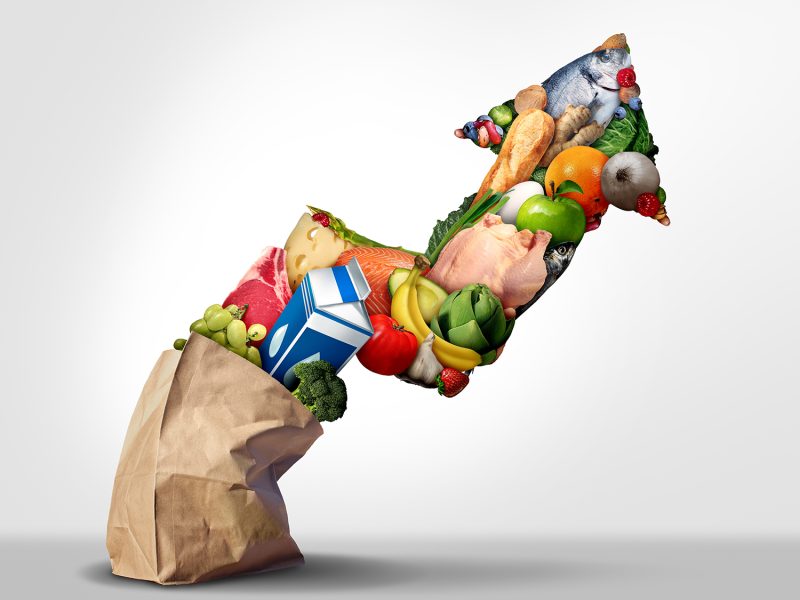Rising food costs and reduced affordability continues to top this year’s list of public confidence in the country’s food systems, according to the annual report of the Canadian Centre for Food Integrity.
The centre’s annual survey, which included 300 respondents from BC, identified food costs as the top public concern for the fifth year running. Close to half – 47% of respondents, say the high cost of food concerns them, up from just 28% in 2020.
The centre advises producers to acknowledge the rising cost of food by working with consumers to make their food dollars go further.
“Acknowledge and support adaptive consumer habit shifts – provide tips on how to properly store or re-purpose leftovers, spotlight recipes that use simple or frozen ingredients, or offer
smaller quantities of your product,” the report, released October 17, stated.
Clear communication is important, because a growing number of consumers – 34%, versus 20% a year ago – feel businesses are profiteering, recouping costs at consumers’ expense.
“Waning public acceptance of the impact of supply-chain costs on food prices should be better-addressed through demonstrating the impact fuel and other materials related to food production has on the price consumers pay,” the centre reports.
The importance of transparency on the factors influencing food costs is a point the agriculture sector has taken to heart.
It lies behind a recent cost of production survey the BC Dairy Association undertook, as well as recent advocacy by farm organizations regarding government efforts to keep food inflation in check.
While government has called on grocers to provide an update on how they’re managing prices, growers are urging accommodation for their own rising costs, particularly feed, fuel, and fertilizer.


 Building a business around community
Building a business around community